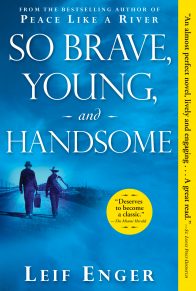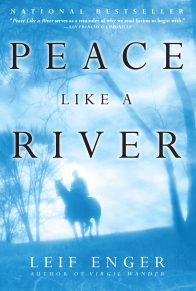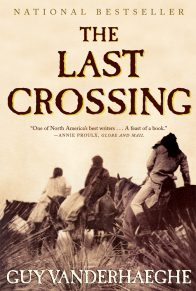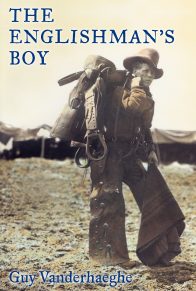1. What are the attributes of a “good man”? How do they guide the characters and events of this novel?
2. In the opening chapter Wesley Case, a constable in the Royal Mounted Police, is beginning a journal. “Both parents demanding I produce an account of my life. One, so I might find myself. The other, so I might find fame” (p. 17). How does this set the viewpoint for all that follows?
3. “When I was fourteen, I drew up two columns, entitled Greatest Weaknesses, Greatest Strengths. Under Greatest Weaknesses, I wrote, ‘I want too much.’ Under Greatest Strengths, I wrote ‘I want too much’” (p. 6). What do you learn about his mother from this statement and from the rest of the journal entry regarding her? What do you infer from what Wesley chooses to recall?
4. There are letters from Wesley’s father, Mr. Edwin Case, a prosperous lumber baron quoted here. What kind of man does he seem to be? What is the quality of their relationship? What do you begin to guess about Wesley’s nature?
5. The first chapter also briefly introduces Michael Dunne, one of the pivotal characters in the story. How does this meeting between Case and Dunne develop? What is your initial impression of Dunne? What are the ways that he is already entangled in the sequence of events? Wesley asks Dunne, “Do you pretend to know me?” (p. 16). Does he?
6. Each of the main characters’ stories are brought to light. This helps to understand them and their actions in the story. Would you describe this as a psychological novel? Real historical events are depicted on a grand scale. Is it an epic novel? It is full of adventure and action. Is it a Western?
7. The author not only uses the reference of the Battle of Little Big Horn to set the historical moment, but he sprinkles the narrative liberally with archaic language Give some examples of some of these words and phrases. How is language used to create setting? How does it enrich the narrative?
8. “What precisely are you asking me to be? A buffer? An intermediary? Or a spy?” (p. 35). Why does Major Walsh enlist Case’s help? Michael Dunne also wishes to work for Major Walsh. What does he propose and what is his motivation?
9. “They all got their first look at Joe McMullen, a weather-ravaged face, crow’s feet flaring at the corners of deep-set black eyes, a crooked mouth, an iron-grey moustache drooping two long wispy tails below his jaws, a tall, lanky composition of sinew, bone, and stringy muscle” (p. 44). Talk about the relationship of Case and Mcmullan. How do these two men complement each other? What does Joe need from Wesley and vice versa? What kind of a man is Joe?
10. Michael Dunne is hired by Randolph Tarr, the lawyer in Fort Benton. He wants protection from Gobbler Johnson. Why? Discuss their history and how their relationship will affect everything that comes to pass. Think about the irony of Michael Dunne teaching AdaTarr how to use her derringer.
11. What impression of Ada Tarr does Wesley Case carry away from the ‘disastrous’ concert where he first sees her? How did her family history impact her values? “He hears her say, ‘My mother used to claim that one can learn more about a person by scanning their books than could be learned by years of acquaintance. Do you think that true, Mr. Case?’” (p. 109). What is set in motion at their meeting the day after the performance?
12. One night Wesley Case has a nightmare that involves his old friend, Pudge Wilson. It has to do with what in his youth he calls “aimless dilettantism.” Who were the Lilies of the Field? What happened between them and the Dixie Boys? Who was the “Lugubrious Helmsman” and what did he arrange?
13. Dunne “has compiled a long list of such people who had treated him as though he didn’t own a thought of his own, beginning with his father, who had thought him no better than a dumb beast of burden” and “dragged him out of school at the age of eleven” (p. 133). But young Michael does show a particular talent. What is it? How would this be described in contemporary terms? How do his perceived “treatment” and his particular gift affect his behavior? Is he the antithesis of a good man?
14. There are various threads of historical conflict woven into the fabric of the novel. One is the struggle of the Fenians and another is the struggle of the Indians, particularly the Sioux. Both are directly connected to the relationship between the U.S. and Canada at that time? How are Wesley Case, Michael Dunne, and Ada Tarr swept up into this history?
15. After the death of Randolph Tarr, John Harding, the mining magnate, hires Dunne to get rid of Gobbler Johnson, who has now turned his way to seek revenge. When Dunne catches up with Gobbler and chillingly disposes of him, more is revealed about Dunne. Explain the meaning of his statement that his “profession is anticipating.”
16. “The entire prairie sparkles white except for one dark spot twenty-five yards in front of her house—Dunne in his black frock coat and derby” (p. 321). In this passage the author uses the landscape to express feeling and mood. There are many other uses of this trope in the novel? Name some. Does this give it a cinematic effect?
17. Why does Case finally reveal his long kept secret about the events of the Battle of Ridgeway that “will always be a shadow at my side” (p. 367) to Ada before he departs for the talks between General Terry and Sitting Bull brokered by Major Walsh?
18. “‘Why would he have made this long journey except for friendship and trust?’ Walsh demands. ‘And if it wasn’t for that, then what do these things count for in the end?’” (p. 376). This assertion is made on the subject of Sitting Bull agreeing to come to Fort Walsh. How does Wesley Case behave and whose trust is he betraying? Is this a foreshadowing of the final tragedy of Sitting Bull and his people?
19. When Case returns to Fort Benton he and Ada resolve to marry in Helena. This sets in motion Michael Dunne’s final plot. What pieces of the story are now brought together to carry it out? What parts in Dunne’s undoing are played by Joe and Ada? What effect does this finally have on their bond?
20. Four years later after Sitting Bull surrenders and returns to the U.S., he and Wesley Case meet once again in Bismarck at the behest of Major Walsh. What makes Case recall something that his friend Pudge had told him long before, “Courage in the face of certain defeat—that’s what tragedy is” (p. 463).
Suggestions for Further Reading:
The Last Crossing by Guy Vanderhaeghe; Peace Like a River by Leif Enger; Thirteen Moons by Charles Frazier; True North by Jim Harrison; In the Fall by Jeffrey Lent; Across the Wide Missouri by Bernard DeVoto; Lonesome Dove by Larry McMurtry













